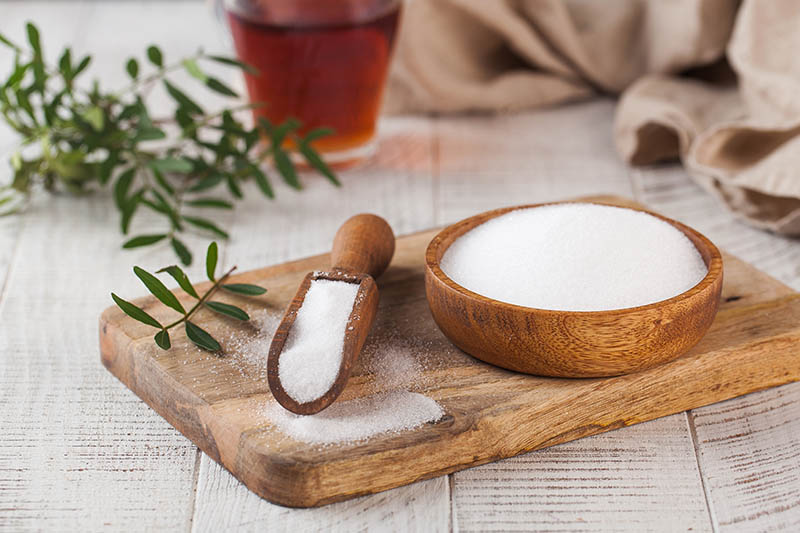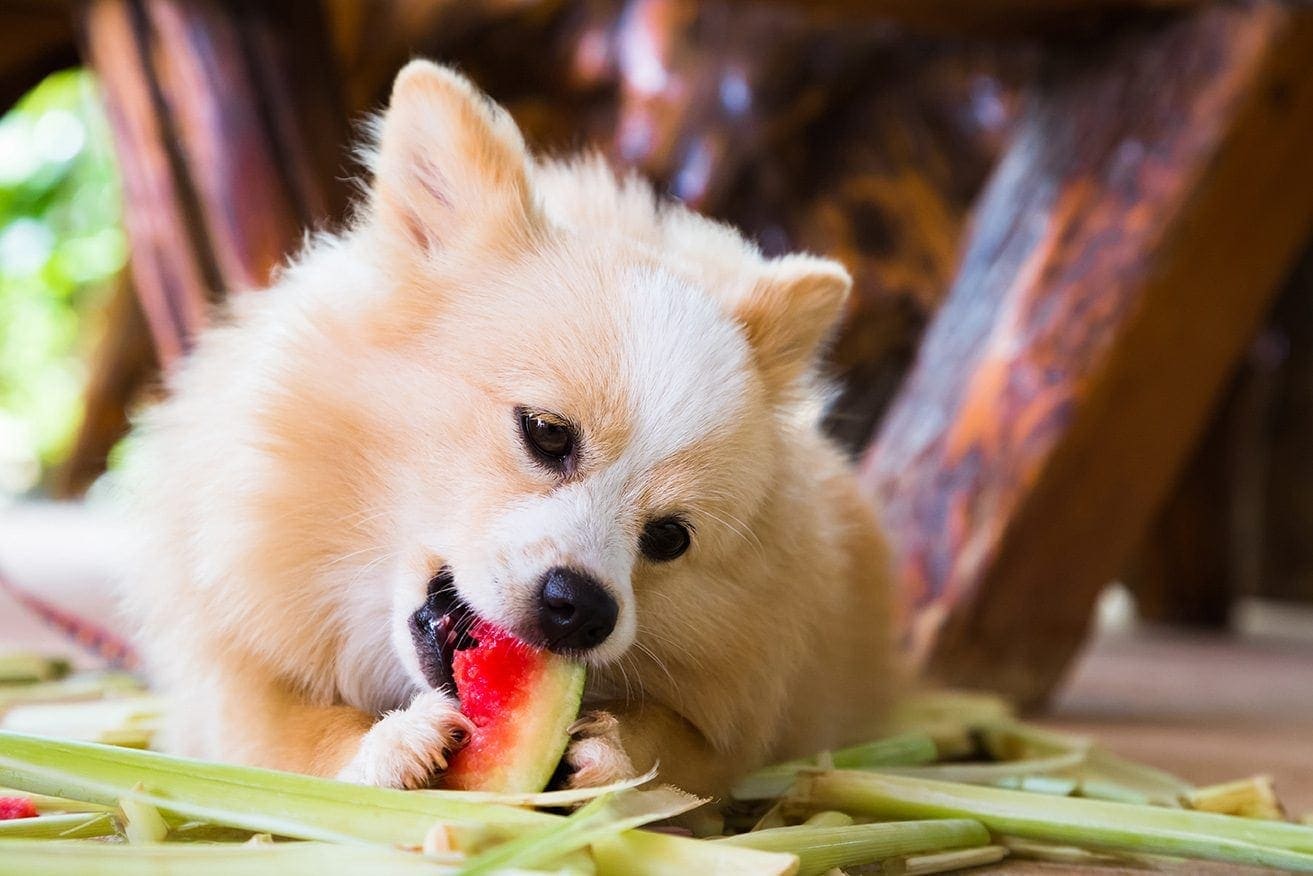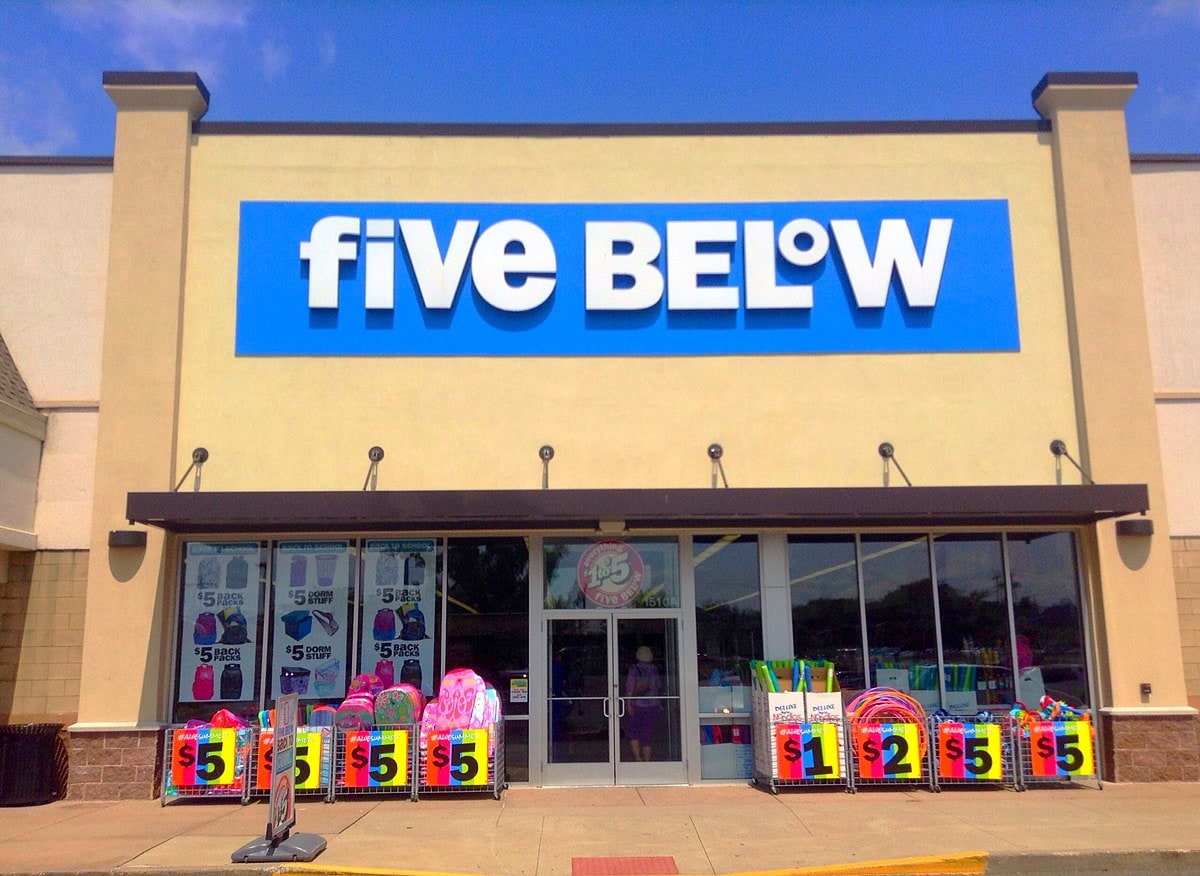Is Erythritol Safe for Dogs? Vet Reviewed Health Concerns & FAQ
Updated on

Click to Skip Ahead
In an age where every other food label has a laundry list of exotic-sounding ingredients and additives, it can feel impossible to decipher which ingredients are safe for your dog to eat. Or more importantly, which ones aren’t. For instance, are artificial sweeteners like erythritol safe for your dog?
Yes, erythritol is safe for your dog to consume in small amounts and isn’t considered toxic. Erythritol is what’s called sugar alcohol, which is valuable in sweetening food without adding a lot of calories or causing drastic changes in blood sugar. That said, if dogs eat a lot of something containing erythritol as a sweetener, they can suffer stomach upset and other gastrointestinal signs, like diarrhea.
So if your dog has managed to steal a snack that’s been sweetened with erythritol, it’s no cause for immediate concern, but don’t go out of your way to feed it to them regularly or in large quantities. If you’re wondering about other sweeteners, we’re already on it. Read below for what other sweeteners are and aren’t safe for your dog to consume.
Which Sweeteners Are Off-Limits for Dogs? aka Erythritol’s Evil Twin
There’s really one main sweetener to watch out for, and it’s called xylitol—you may have heard of it. Xylitol is a sugar alcohol sweetener similar to erythritol, but the way dogs process it makes it deadly to them. Specifically, their pancreas confuses xylitol for real sugar and sends out insulin to nullify it, but that insulin ends up destroying real sugars in the body. If your dog eats a considerable amount of any product containing xylitol, dangerous hypoglycemia may ensue.
Aside from causing life-threatening hypoglycemia, xylitol can also cause irreversible liver damage. Basically, xylitol and dogs do NOT go together.
A few common products that contain xylitol include peanut butter, sugar-free gum, baked goods, and other sugar-free human foods. It’s extremely important to check the label on peanut butter because you want to avoid any brands that list xylitol as an ingredient. If your dog has eaten anything containing xylitol, or even if you just suspect they have, you must contact your vet immediately – this is an emergency. If you wait until clinical signs appear, it may already be too late.

What Other Sweeteners Can Dogs Safely Consume?
Erythritol isn’t alone—dogs can tolerate most other sweeteners in small doses, but they aren’t something that should be included in their diet. Still, you’ll be glad to know that you shouldn’t panic if your pup happens to eat any of them. Scroll down for the specifics.
- Stevia: A safe natural sweetener but can cause stomach upset and diarrhea in large quantities.
- Aspartame: Another sweetener technically safe for dogs but can cause stomach upset in large amounts.
- Sucralose: Safe in small quantities but can cause diarrhea in some cases.
Should Dogs Have Sweets? Alternative Treat Ideas

Strictly speaking, no, dogs don’t need the types of sweets we eat as snacks and desserts. Our diets may be loaded with processed sugar, but it’s as unhealthy for your dog as it is for you. Excess sugar intake can cause obesity and pancreatic disturbances in dogs, and should be avoided. So, what are you to do when you want to treat your dog to something tasty? We have some pretty solid ideas.
- Watermelon: Made of 92% water, this is a low-calorie summer treat jam packed with vitamins C, A, B6, and potassium.
- Carrots: Good source of vitamins A and C, as well as lots of fiber to regulate the digestive tract. Try chopping some into your dog’s meals or use it as a dental treat.
- Peanut butter: High in fat but a delicious source of vitamin E, fiber, and protein. Try chilling some in a Kong toy, but a teaspoon to a tablespoon is more than enough.
- Sweet potatoes: Boil ‘em, mash ‘em, or stick ‘em in a stew (that’s one for the Lord of the Rings fans)—sweet potatoes are rich in fiber, vitamins, and beta-carotene to keep your pup’s coat healthy.
Conclusion
Erythritol may be safe for your dog to consume in very small amounts, but the stuff that contains it shouldn’t be part of your dog’s diet in any significant amounts. Instead of sweet human treats with harmful ingredients, consider a healthy carrot, some peanut butter, or a nice slice of watermelon instead.
Remember, if your dog has possibly ingested food containing xylitol, or if you are worried about any other possible toxins, do not hesitate to call your vet or get in touch with the Poisons Hotline for advice.
Featured Image Credit: Kabachki.photo, Shutterstock












